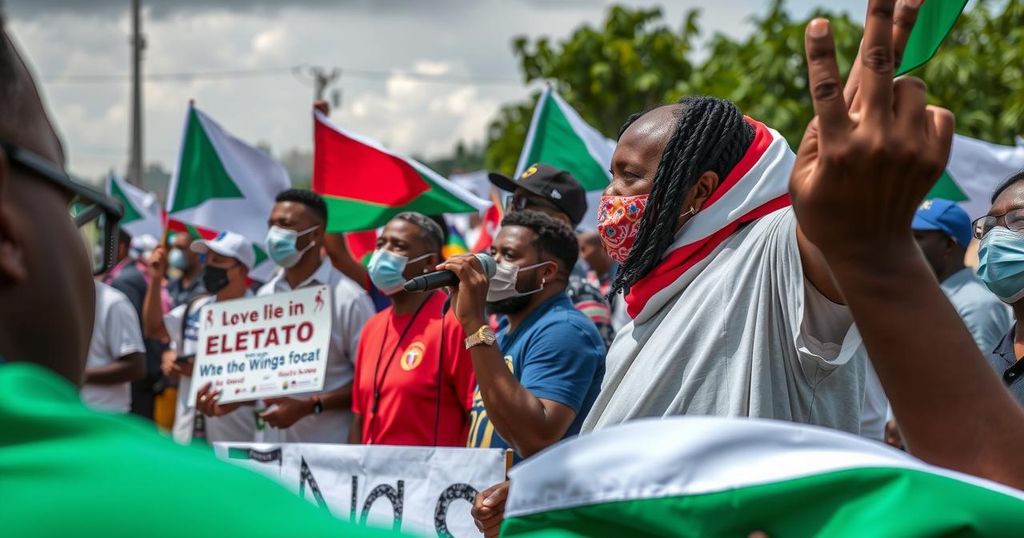Comoros Opposition Denounces Legislative Election Outcomes Amid Fraud Claims

The Comoros opposition has rejected the results of recent legislative elections, citing accusations of severe electoral fraud. Boycotting the polls, key opposition leaders claimed the elections lacked transparency, and instances of ballot box tampering were reported. President Assoumani dismissed these allegations and asserted that the opposition must provide evidence for their claims, as a second round of voting approaches in February.
On Monday, opposition leader Daoud Abdallah Mohamed formally rejected the results of the legislative elections held in Comoros, criticizing them for alleged “gross fraud.” The elections were marked by widespread boycotts from the opposition, who charged that the electoral process was not transparent. Mr. Mohamed, a former interior minister and figurehead of the United Opposition coalition, asserted that there were numerous irregularities, including ballot box stuffing and instances where the number of votes exceeded the number of registered voters.
The electoral commission of Anjouan, Comoros’ most densely populated and impoverished island, announced the victory of 12 candidates from the ruling Convention for the Renewal of the Comoros (CRC) party, claiming a voter turnout of 70 percent. Observers noted discrepancies; for example, while turnout appeared low in certain regions, ballot boxes were reportedly filled disproportionately. In Moheli, four out of five voting districts had only a single candidate from the ruling party, with the sole opponent withdrawing midway through the process.
President Azali Assoumani, who has been in power since 2016, dismissed the allegations of election malpractice and emphasized the need for the opposition to substantiate their claims. He highlighted that accusations of election tampering are not unprecedented. As the political landscape develops, a second round of voting is scheduled for February 16, during which Mr. Mohamed indicated that the United Opposition would abstain from participation.
The political climate in Comoros has been notably tense in recent years, particularly surrounding elections. The ruling CRC party, led by President Assoumani, has faced accusations of electoral misconduct, prompting significant dissent from opposition factions. The recent legislative elections follow a trend of political unrest, where transparency and credibility of elections have come under scrutiny. The participation of opposition parties is crucial for democratic processes; however, widespread boycotts highlight ongoing divisions within the nation’s political framework.
In summary, the opposition’s rejection of the recent legislative election results in Comoros underscores the persistent challenges of electoral integrity in the nation. Allegations of fraud and manipulation, coupled with a boycott by key political factions, raise serious questions about the democratic process. The ongoing political discord will likely influence future elections, as opposition leaders intend to abstain from participation in the upcoming second round.
Original Source: www.barrons.com







